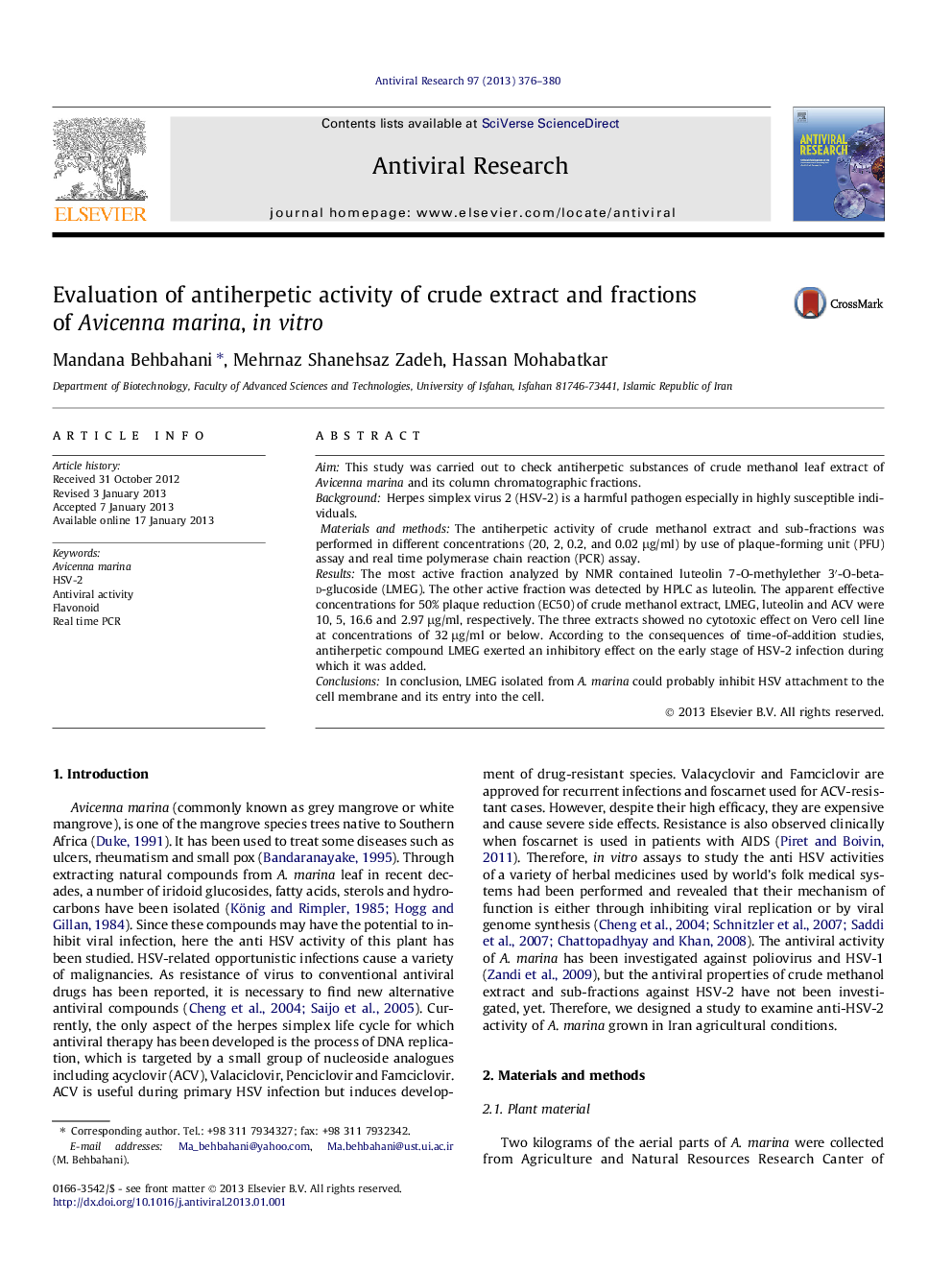| Article ID | Journal | Published Year | Pages | File Type |
|---|---|---|---|---|
| 5822640 | Antiviral Research | 2013 | 5 Pages |
AimThis study was carried out to check antiherpetic substances of crude methanol leaf extract of Avicenna marina and its column chromatographic fractions.BackgroundHerpes simplex virus 2 (HSV-2) is a harmful pathogen especially in highly susceptible individuals.Materials and methodsThe antiherpetic activity of crude methanol extract and sub-fractions was performed in different concentrations (20, 2, 0.2, and 0.02 μg/ml) by use of plaque-forming unit (PFU) assay and real time polymerase chain reaction (PCR) assay.ResultsThe most active fraction analyzed by NMR contained luteolin 7-O-methylether 3â²-O-beta-d-glucoside (LMEG). The other active fraction was detected by HPLC as luteolin. The apparent effective concentrations for 50% plaque reduction (EC50) of crude methanol extract, LMEG, luteolin and ACV were 10, 5, 16.6 and 2.97 μg/ml, respectively. The three extracts showed no cytotoxic effect on Vero cell line at concentrations of 32 μg/ml or below. According to the consequences of time-of-addition studies, antiherpetic compound LMEG exerted an inhibitory effect on the early stage of HSV-2 infection during which it was added.ConclusionsIn conclusion, LMEG isolated from A. marina could probably inhibit HSV attachment to the cell membrane and its entry into the cell.
⺠Herpes simplex virus 2 (HSV-2) is a harmful pathogen especially in highly susceptible individuals. ⺠Avicenna marina has been used to treat some diseases such as ulcers, rheumatism and small pox. ⺠Previously, the antiviral activity of A. marina has been investigated against poliovirus and herpes simplex virus type-1. ⺠In the present study loteolin and luteolin 7-O-methylether 3â²-O-beta-d-glucoside (LMEG) isolated from A. marina.
